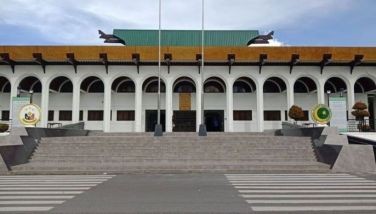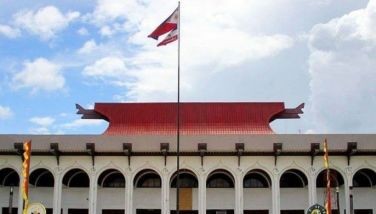Against all odds
Typhoon Ondoy has left the country but the ravages left behind will certainly take its toll on everyone’s lives and livelihood. Unlike other calamities which centered in other areas, Ondoy’s damages were concentrated in Metro Manila and Rizal province. Early estimates place the extent of loss to be in the neighborhood of P4 billion. While this amount is expected to further rise, Ondoy’s impact on the economy, if any, would be reflected more visibly in the fourth quarter economic results.
Calamities and stocks
Catastrophes had made contrasting effects on the stock market. As can be gleaned from the disasters in recent memory, there appears to be an inconsistent pattern between natural disasters and the PSEi. While there has been a consistent negative repercussion on the bourse immediately after these events, the effects of calamities on the PSEi a month and a quarter after, registered mixed results. This suggests that some events may have played a greater role in influencing the market’s performance than others.
Typhoon Frank affected 4.8 million people across the country. Milenyo, at category 4, was the strongest typhoon to directly hit Metro Manila in a decade. Tropical storm Thelma, which hit Ormoc City in Leyte, was the deadliest typhoon with an estimated 6,000 casualties. The Mt. Pinatubo eruption was the most destructive. It was believed to be a dormant volcano and yet caused ash clouds to reach as far as Vietnam. The Baguio earthquake, which toppled the Hyatt Terraces Hotel apart from 27 other buildings, was the worst to have hit the Philippines.
It’s the economy that matters
Each calamity has an effect different from others. The impact on the economy will depend on the gravity of the damage. At the end of the day, it is the performance of the economy and the earnings of listed companies that matter more. Ultimately, it is the underlying fundamentals that drive the stock market.
Ondoy’s bear and bull case
The real estate and insurance sectors are in an uncomfortable situation now. Like the streets of Metro Manila, they, too, are flooded, but with complaints and claims. Viability of residential projects particularly in flooded areas is under scrutiny while the ability of insurance companies to honor claims for damaged properties is pushed to the limits.
On a brighter note, remittances are rising given the monetary support extended by the OFWs to their affected families and relatives. Well ahead of a seasonally strong exchange rate towards the holiday season, the recent vigor of the peso is supportive of this view. In addition, while consumer spending in general is expected to decline, brisk sales of basic goods like food and clothing were noted. Sales of appliances, too, are seen to pick up as people replace the ones destroyed by the flood.
Overwhelming support
Truly, the spirit of Bayanihan is rekindled. Probably akin to the sense of unity and selflessness seen during the EDSA Revolution, Filipinos have shown compassion towards the less fortunate. Whether affluent, middle class, or impoverished, everyone is making an effort to alleviate the misery of those affected. Filipino communities, school alumni, and civic associations are united in reaching out, raising funds, and sending donations to the less privileged. Companies, meanwhile, are helping restore their employees’ well-being through relief grants and salary advances.
Overall, it does not matter if one is rich or poor, it does not matter if one is a professional or still a student, it does not even matter where one volunteers (yes, DLSU students volunteered in Ateneo); what matters is, everybody is contributing. And everyone did even in their own little ways. The outpour of support and compassion is simply overwhelming. The best of the Filipino has come out yet again.
Bouncing back
The Filipinos have gone through a lot of typhoons. From Dading, Yoling, Milenyo and now Ondoy, the Filipinos have always bounced back because of their unique support system. Against all odds, the Filipinos’ resiliency has always prevailed. And like the Filipinos, the stock market too will bounce back.
For comments and inquiries about this article, you can email us at info@philequity.net. You may also view our archived articles at www.philequity.net or www.yehey.com/finance.
- Latest
- Trending































